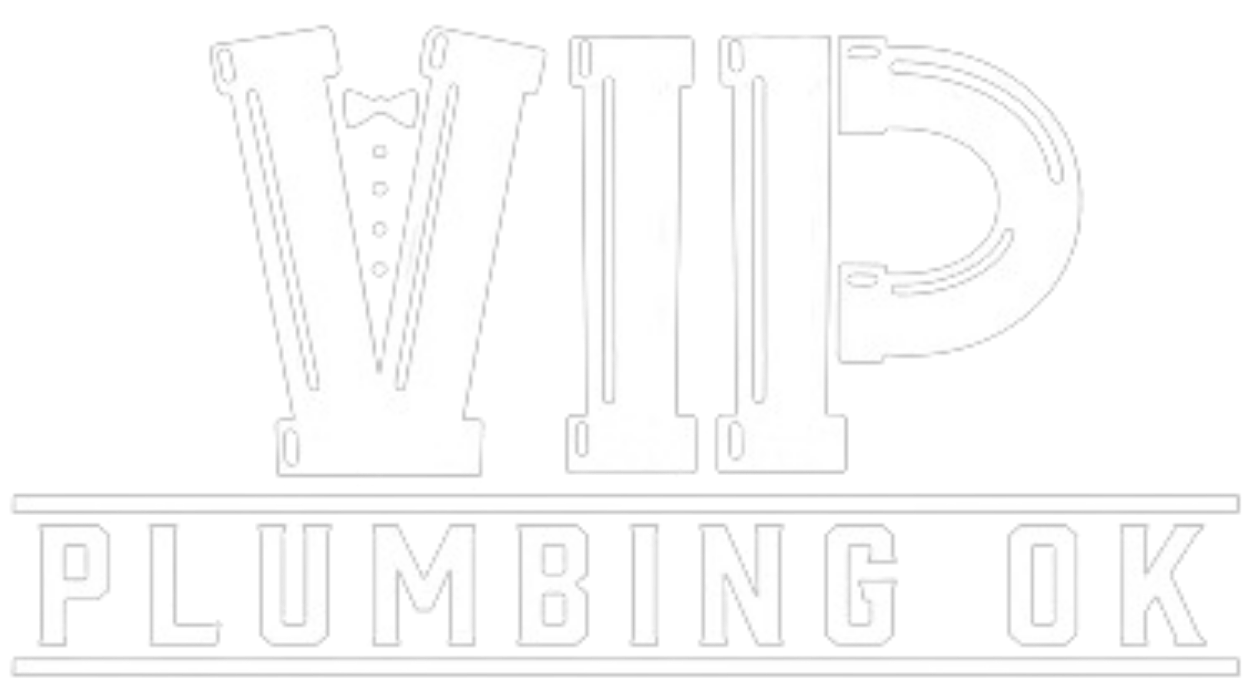Gas lines are a critical component of residential properties, enabling various modern conveniences such as heating, cooking, and water heating. However, they also pose significant risks if not properly maintained. Understanding these hazards and how to mitigate them is essential for every homeowner. This article explores what gas lines are, their varied uses in a home, and signs your gas line may be deteriorating or leaking. We then will discuss the common causes of gas leaks and some preventive measures homeowners can adhere to ensure the safety of their homes and families.
What is a Gas Line?
A gas line is a piping system designed to transport natural gas from the main supply line to various appliances within a residential property. Made from materials such as steel, copper, or polyethylene, these pipes ensure a safe and efficient flow of gas. The gas is distributed to appliances throughout a home, providing a reliable energy source for daily household activities.
Where Does Natural Gas Originate?
Natural gas is a fossil fuel that develops after millions of years from decaying plants and animals that become buried by rock, silt, and sand. As these accumulations are exposed to intense heat and pressure, some of them are converted into natural gas, which is captured, processed, and distributed as an energy source. Here is an overview:
Drilling
Natural gas is mined through a process called drilling, where wells are drilled deep into the earth to reach gas-rich rock formations. These formations can be found on land or offshore. Once the well is drilled, a mixture of water, sand, and chemicals is injected at high pressure to fracture the rock and release the trapped gas, a process known as hydraulic fracturing or fracking.
Processing
Natural gas then naturally flows up the well to the surface, where it is collected and processed to remove impurities. This processing also ensures the gas does not get too cold, which could cause condensation and the unwanted addition of water to the natural gas supply.
Distribution
After processing, the gas is transported through a network of pipelines. These pipelines can span vast distances, carrying the gas from the production site to storage facilities and distribution networks. Finally, natural gas is delivered to homes through smaller pipelines, where it is used for heating, cooking, and powering appliances. This intricate process ensures a continuous and reliable supply of natural gas to meet households’ energy needs.
Uses for Natural Gas in a Home
Natural gas is a readily available and versatile energy source with several applications in a home. Although natural gas is not always available in certain rural areas, those who do have access can enjoy the reliability of gas to operate the following appliances:
HVAC Equipment
Natural gas is commonly used to power HVAC equipment, and gas-powered furnaces and boilers are popular choices that run efficiently and provide consistent warmth in the wintertime.
Cooking
Those who enjoy cooking and baking prefer natural gas ovens and cooktops over electric appliances since natural gas provides precise temperature control. Natural gas is also more cost-effective, which is an added bonus. Outdoor kitchens, which are hugely popular, can also be built to take advantage of natural gas.
Water Heating
Gas water heaters provide a continuous supply of hot water and do so twice as quickly as other models. They also boast the lowest operating costs and provide unlimited hot water to meet the demands of today’s busy families.
Clothes Drying
Gas dryers are more energy-efficient and dry clothes faster than their electric counterparts. They heat up more quickly so they save time along with money.
Fireplaces
Gas fireplaces offer the ambiance of a traditional fireplace with the convenience of instant heat and easy operation. Typically operated by a remote control, a warm and inviting atmosphere is simply a click away!
Firepits
Firepits can be enjoyed all year long, and natural gas is a smoke-free and ash-free source of energy that powers these gathering spots. No more cutting and stacking wood, but instead, a flick of a switch creates a cozy area for friends and family to enjoy after a long day.
Signs Your Gas Line May Be Deteriorating or Leaking
Early detection of gas line issues is crucial to prevent hazardous situations. Homeowners should be vigilant for the following signs of deterioration or leakage:
Rotten Egg Smell
Natural gas is odorless, but a sulfur-like odorant is added by utility companies as an easy-to-recognize warning sign so a leak can quickly be detected.. A rotten egg smell is a strong indicator of a gas leak that should never be taken lightly.
Hissing Sound
A hissing or whistling sound near a gas line or appliance can signal a gas leak. As the gas escapes, it whistles because it is pressurized inside the pipe, and the sound is the release of that pressure.
Dead Vegetation
Unexplained dead or dying plants above or near a buried gas line can indicate a leak. Leaking gas will also be known indoors by slowly dying houseplants, although this may not always be apparent if the homeowner lacks a green thumb!
Increased Gas Bills
Although the cost of everything is on the rise, be mindful of a sudden spike in gas bills without an increase in usage. The higher cost likely indicates you are paying for gas that is leaking out of the line before it reaches the intended appliances.
Bubbles in Water
It could indicate a gas leak if you notice bubbles in standing water or a wet area around your yard. If the bubbling is accompanied by a fizzing sound, call for emergency help immediately!
Causes of a Gas Leak in a Home
Several factors can contribute to gas leaks in residential properties. Regardless of their origin, we cannot stress enough the importance of abandoning a property and calling for professional help. Fires, explosions, and poisonings are conditions you will want to avoid at all costs! Here are some common culprits leading to dangerous gas leaks!
Poor Installation
Improperly installed gas lines can lead to leaks and other hazards. Gas line installation, repair, or maintenance should never fall into the DIY category!
Corrosion
Over time, gas lines can corrode, especially if they are made of older materials like iron or steel. A regular inspection of the line will help homeowners realize the dangers of corrosion on their gas lines and when it is time for a replacement!
Wear and Tear
Natural aging and regular use can cause gas lines to crack or break. Common excessive wear and tear occur at fittings and connections, so be extra aware of these areas.
Physical Damage
External factors such as construction activities or natural disasters can damage gas lines. This is a good time to remind homeowners that before they dig they must call the utility to have the location of the gas line mapped out to avoid a disaster.
Faulty Appliances
Malfunctioning gas appliances can lead to leaks, especially if they are not maintained regularly. It is wise for homeowners to enroll in yearly inspections by professional plumbers to evaluate the condition of their gas-powered appliances. This is an investment well worth the cost!
Ways to Prevent a Gas Leak from Occurring
Preventive measures are essential to maintain the integrity of gas lines and ensure household safety. Allowing years to pass without a professional evaluation is simply asking for trouble! Here are steps that should be taken to ensure a safe home:
Regular Inspections
Schedule annual inspections by qualified professionals to check the condition of gas lines and appliances. This should be done yearly, but additional service calls may be needed if a problem arises.
Proper Installation
Ensure gas lines and appliances are installed by licensed professionals who follow safety standards. There are codes that specify how every aspect of a gas line installation should be handled, which the general public does not know.
Use of Modern Materials
Consider replacing old gas lines with newer, corrosion-resistant materials like polyethylene. Allowing your gas line to remain over many years is a dangerous decision that could result in an explosion of tremendous force and destruction.
Install Safety Devices
Equip your home with gas leak detectors and carbon monoxide detectors to alert you of potential hazards. These are easy to install and provide a level of comfort, knowing you will be alerted to any issues, even those that are difficult to detect through just your senses!
Maintenance of Appliances
Regularly service gas appliances to ensure they are functioning correctly and safely. Newer models boast higher efficiencies, so they cost less to operate and include monitoring devices such as smart features which provide invaluable data about your system.
Looking For Outstanding And Reliable Gas Line Installation And Maintenance?
Gas lines play a vital role in residential properties, providing essential energy for heating, cooking, and more. However, they also pose significant risks if not properly maintained. Recognizing the signs of deterioration or leakage, understanding the causes of gas leaks, and taking preventive measures are crucial steps in ensuring the safety of your home.
By staying proactive and informed, homeowners can mitigate the hazards associated with gas lines. Schedule regular inspections, maintain your appliances, and consider upgrading to modern materials to protect your home and family. Don’t wait for a problem to arise—take action today to ensure a safe living environment.
Give us a call today, and rest assured that we are the experts in gas line installations and maintenance and will to make the safety of your home and family our #1 priority!

